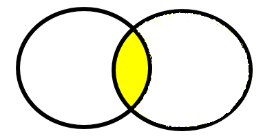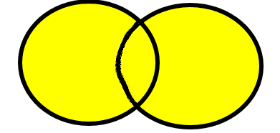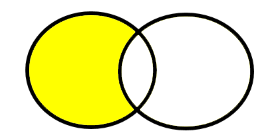Searching for Information Online
Where to Search for Information
- The Library vs. Google (or similar search engines)
- Library resources are expensive: Information is a commodity, and the library spends money so that you can have access to high quality information.
- Library resources are focused: There are different databases to use for different research topics. This helps you find what you need faster.
- Library resources give you more search power: With library resources, you can limit your search by date, research type, age group, peer reviewed, etc. You cannot limit that much with Google.
- Books vs. Journal Articles
Articles are not always the best resource for an information need. In many casesbooks are preferable.- Books (Find in IUCat, through ebook packages, etc. )
- cover more general information (this is a great place to start if you know little about your topic)
- contain widely accepted or known information/practices
- tend to be less current than articles
- Journal Articles (Find in Electronic Resources/Databases)
- usually very specific
- more current since they are published in a short amount of time
- Books (Find in IUCat, through ebook packages, etc. )
How to Search for Information
- Keyword Searching vs. Subject Searching
- Keyword searching is what most people are familiar with.
- Subject searching can take more time but tends to yield better results.
- Not all concepts have subject headings, and sometimes, you will want to use both strategies.
- Keyword Searching Tips
- Use synonyms – Keyword searching will only try to find articles with the exact word that you put in the search box. There may be other ways to describe what you want. For example, instead of searching for high blood pressure, try high blood pressure or hypertension or hbp oretc.
- Truncate – This can be a powerful search strategy. In a lot of databases, the symbol is “*.” For example, diagnos * will bring up articles with diagnosis, diagnosing, diagnostic, diagnostics, etc.
- Spelling – A lot of health sciences literature is published in Europe. Try using British spelling alternatives. For instance, pediatrics or paediatrics. For more British spellings, you may want to look at this site: https://www.lexico.com/grammar/british-and-spelling
- Use fields – Many databases allow you to search in different fields. One way to limit results to more relevant items is to look for keywords in the abstract or title of an article.
- Subject Searching Tips
- Look for the option in the resource you are searching. For example, MeSH in PubMed or “Suggest Subject Terms” in CINAHL.
- Break your search down into concepts and search each concept separately so you can take advantage of databases that map keywords to subject terms.
- If the term does not map the first time, try a synonym. You might also try searching for your term in the title of articles and then look at the subject terms (a.k.a. headings) assigned.
Boolean Logic
- Boolean logic searching consists of individual terms or phrases connected with AND, OR and NOT. These broaden or narrow depending on the term used:
Boolean "AND"

Using AND will retrieve fewer results (ex. heart attacks AND aspirin)
Boolean "OR"

OR will retrieve more results (ex. heart attack OR myocardial information)
Boolean "NOT"

NOT will exclude unwanted terms (ex. substance abuse NOT cigarettes).
Table 1 (above): Boolean AND, OR, and NOT visualized.
Nesting
Like a math problem, you can use nesting to run a complex search in most databases.
EXAMPLE - A comprehensive search using synonyms on the topic of MRSA treatment with antibiotics:
(MRSA OR Methicillin-resistant Staphylococcus aureus) AND (antibiotic* OR Clindamycin OR Daptomycin OR Doxycycline OR Linezolid OR Minocycline OR Tetracycline OR Trimethoprim-sulfamethoxazole OR Vancomycin)
Find Full Text of an article
- To see if full text is available, use the Find It Button
 located on the upper-right-hand side of the page - or visit Finding Full Text.
located on the upper-right-hand side of the page - or visit Finding Full Text. - If no full text is available, click on ILLiad. (You may need to log into the service with your IU username and passphrase.)


